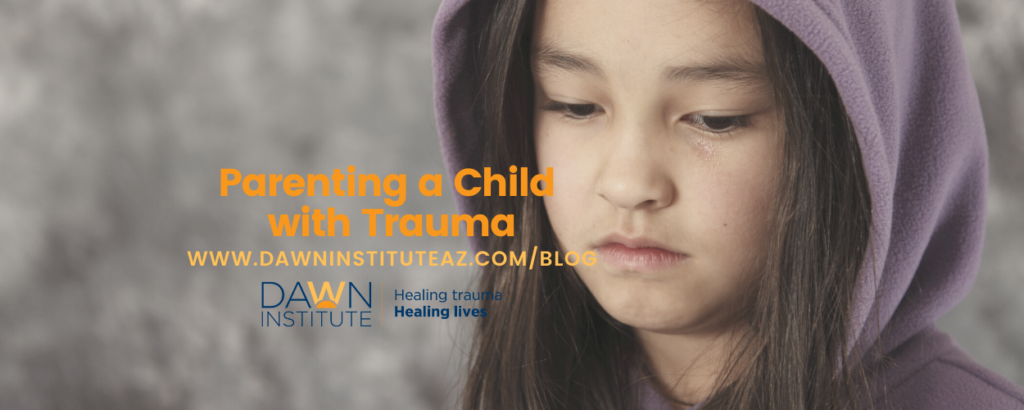As a parent it can be really difficult figuring out how to help your child or teen who has experienced some type of trauma. We can’t take their pain away. Or make them forget their pain. We can’t ignore that it happened. So how do we help them? What do we do to make it better? How do we fix it???
How to Support Their Journey to Healing
HA, that’s the golden question! And the simple answer is…we can’t. I think when we finally come to that realization, it makes helping our kiddos and teens navigate through their trauma a little easier.
So here’s are some useful tips:
- Don’t blame yourself
- Do keep the door open to talk
- Try to stay emotionally strong
- Don’t try to fix it
- JUST LISTEN!!
- Keep healthy rules/discipline/boundries
Don’t Blame Yourself
First, it’s important to not blame yourself. I’ve mentioned this in a previous blog, kiddos have this innate ability to want to protect their parents. So, if they see or even think that you blame yourself, it makes it harder for them to seek out emotional comfort from you.
Do Keep the Door Open
I have a lot of parents who say “my child knows I’m here to talk when they are ready.” Logically knowing and emotionally feeling safe are two very different things. What I mean by this is often what we think is different than how we feel. We can think “I want to talk to mom or dad about this,” but we can feel like we can’t talk to anyone, or they won’t understand, or that it will hurt their feelings, and many, many other things.
So as their parent, we need to constantly open that door of, “hey, I’m here to talk whenever you need me,” or “hey, what’s on your mind?” Or even, “you can talk to me about anything, I’m always here to listen and its ok to tell me what’s goin’ on.”
Try to Stay Emotionally Strong
So here’s the hard one….as a parent, when our kiddo or teen does finally open up, it can be REALLY hard to hear. What person wouldn’t get emotional? That’s a healthy reaction. Do try to comfort them and let them know you are sad and it’s ok that your sad. And let them know it’s ok to keep talking. Reassure them you are there for them. Don’t let them get overly protective of your feelings! Let them know you can be sad and still be their parent and emotionally support them.
Don’t Try to Fix It
As parents, its easy to want to try to fix it and just make the pain go away…but for trauma, it doesn’t work like that. We need emotional support to get through trauma. We need supporter. Not a fixer. When we feel like we have support and comfort, we can figure out how to get through it and not let it affect us long term.
JUST LISTEN!!
This kinda goes hand in hand with not trying to fix it. But I felt it needed its own paragraph for how important it is. We need to just listen to them. NOT tell them we know what they’re going through. Not tell them it could’ve been worse, “well at least it wasn’t….” or “at least that didn’t happen…” etc., etc. Validate that you are there for them.
And tell them:
- it is ok to be pissed, hurt, or sad
- crying is okay
- to scream and let it out
- it’s ok for whatever they may be feeling.
Keep Healthy Rules/Discipline/Boundaries
Lastly, something really common I find is parents feel guilty, so they stop enforcing rules consequences, and healthy boundaries. Your kiddo still needs structure, even if they are acting out. Structure, rules, and boundaries are how kiddos feel safety. If they start a fight at school and before the trauma that was a rule not to do, then provide the same consequence.
But DO talk to them and be that emotional support. Tell them it’s ok to be angry and want to get that anger out. Let them FIRST express how they are feeling emotionally and validate, validate, validate. Then reassure the rules and provide the consequences. As parents, our jobs are to be an emotional safe base and teach our kiddos lessons on how to succeed in life. So be that emotional comfort, then teach that important lesson.
If you find that you are struggling to handle your kiddos trauma, it’s ok to reach out for support. Lean on your friends and family. Use the community.
Resources:
Attach Families Support Group
https://www.facebook.com/groups/2075476239137817/?ref=share
The National Child Traumatic Stress Network
https://www.nctsn.org/resources/childhood-traumatic-grief-information-for-parents-and-caregivers
Psychology Today- Support Groups
https://www.psychologytoday.com/us/groups/az/phoenix?category=parenting

